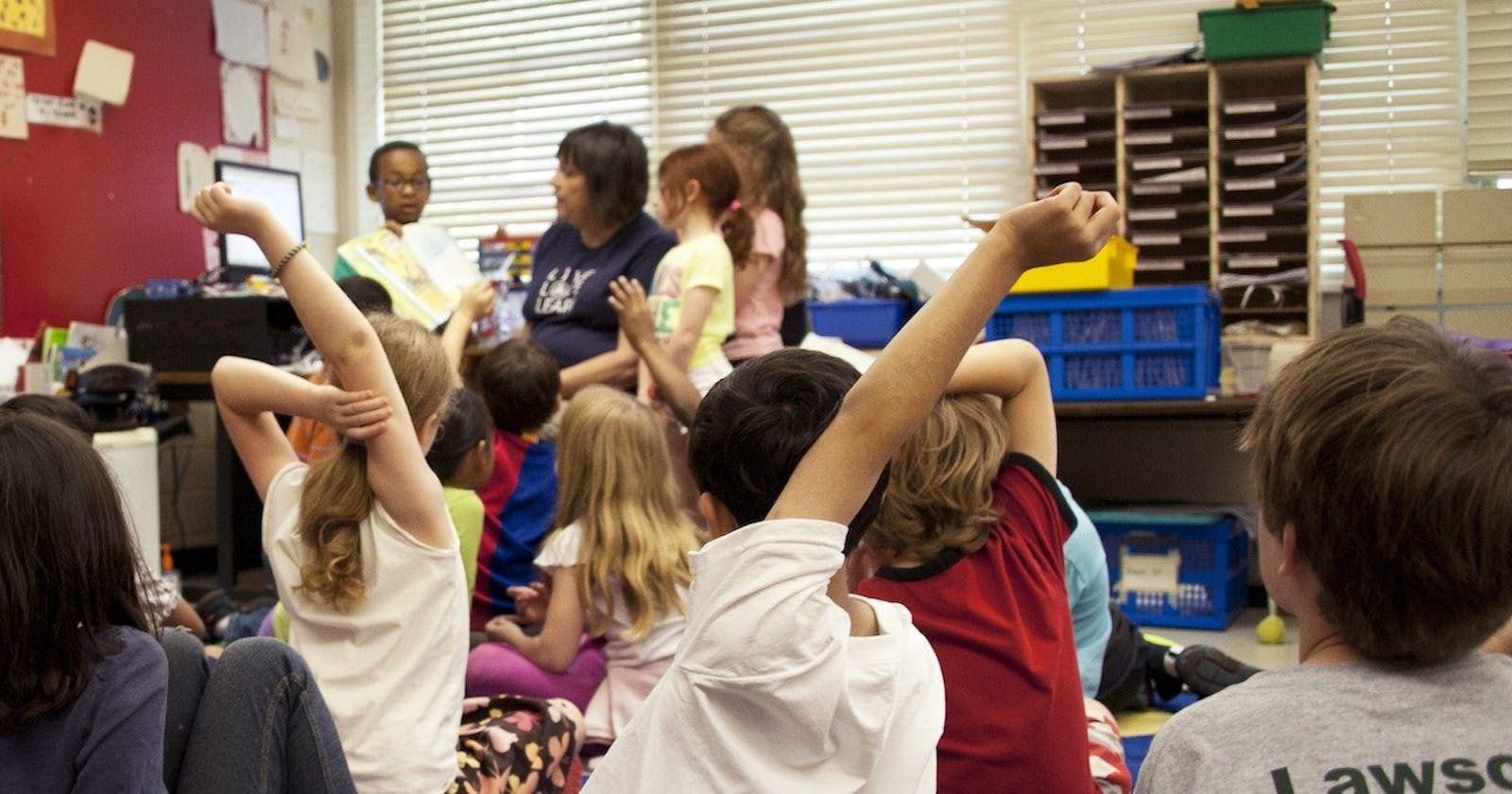Schooling as you travel the world
Firstly, we are based in the UK where homeschooling is legal.
Part 1 of a [TBC] part series on planning how to travel the world with your family.
In August 2021 (all being safe to do so) my family and I will travel the world for a year, one big part of this trip will be schooling our two children. I wanted to share some approaches and research I have done about how we plan to do this.
##Audio Version
You can read the article below or listen to the audio version via my podcast or susbcribe here.
The Rules
Firstly, we are based in the UK where homeschooling is legal, this is not the case in all countries such as Cyprus where you have to send your child to a physical school, so check if your country allows homeschooling. In the UK if your child attends mainstream school you tell your current school you plan to homeschool, as long as you do not want your children to go to school part-time, the school has to accept it. The only exception to this is if your child is at school under a School Attendance Order in which case you would have to get the permission of the local council.
The one downside of homeschooling your children in UK is that in most cases you lose your current school place. This means we have no guarantee we will get it back upon our return. The loss of their school place was a sticking point for us for a long time, but we finally rationalised that the trip is a more significant benefit to them than the risk of not getting back into their current school.
In the UK it is only compulsory to provide ‘efficient’ education for your child, so if you homeschool you don’t have to follow the national curriculum and the governmental guidance for ‘efficient’ education is very broad. This is pretty awesome news if you want to travel the world and school your children because you get to decide what and how you teach them. We will however be keeping in mind that we plan to return to the UK and want our children to go back into the UK education system. This means we don’t want them to fall behind with their studies or be way ahead of their peers.
UK Curriculum
We are fortunate that we have two reasonably academic children, so there isn’t any significant concern of their ability to learn from a hotel room, a beach or a tent on the side of a mountain. With the current UK lockdowns, we have learnt what works well and not so well for our children outside the classroom environment.
We have spoken with many teachers to understand what level of teaching we will need to complete to ensure our children are ready to return to UK schooling. The consensus is that two hours a day of “textbook” UK national curriculum English and Math learning will do the trick. We will also every two months do a Zoom call with a teacher to get a sense of where they are and what we need to focus on to keep them on track with the UK curriculum. We are reasonable sure that History, Geography, Science and Art will take care of themselves as we submerge them into new cultures and locations. Education Stack
Digital tools will be essential as we don’t want to pack lots of physical books in our luggage. There are many tools available, at the moment our education stack is the following (if anyone has any suggestions, please let me know as this is an evolving setup).
- Google Suite - docs, sheets, presentations
- Canva - graphic design
- Asana - task planning and progress tracking
- Visual Studio Code - coding
- YouTube - learning on almost any topic
- Twinkl - teaching resources
- Oak academy - lessons
Where we can we will be using the tools the children already access at school, such as timetable rockstars.
A Different Approach
Now the fun part, my wife and I now know we are in no way teachers, as most UK parents have learned for themselves over the last year. Therefore, we have decided that trying to recreate the classroom as we travel would be a disservice to the children and would not maximise the travel experience.
Ok, so what are we going to learn and how.
Language
First up is a new language. We can all speak English (though my wife would question my ability there). We will learn Spanish as a family and plan to become conversationally fluent before we get to South America in May-ish 2022. We have started this by using the Duolingo app for 15 minutes a day. Besides conversing with people in their native tongue and the enhanced experience that will give us. Learning a second language increases memory, improves problem-solving skills, enhances concentration, and creates better listening skills.
I look forward to recording a tech interview in Spanish next year (this feels like a long way off today).
Martial Arts
I have practised martial arts of varied forms over the last 20 years and find it a great skill to have learnt. Brazilian Ju-Jitsu (BJJ) in my opinion is something everyone should learn. It is a great workout, provides confidence regardless of your size and is all defensive (no striking) meaning you can repeatedly practise without getting too hurt.
The benefit of having two children is that they can spar with each other and only need a few meters of space (a double bed though maybe not the best place, is a great location when travelling). Pre lockdown's they would do about an hour a week of BJJ, when travelling we will aim to do an hour a day. Meaning they will get a 7x increase in their practice during the year, which should get them to their blue belts unofficially by the end of the trip.
The great thing about martial arts is there is always a welcoming community. I believe as we travel, we could drop into any BJJ gym in the world and be welcomed even if for only a few sessions. Our children will get to see how BJJ is taught in various countries, learn different approaches, and meet people from all these places to learn from and continue to choke out their dad.
Music
Music, I am the least musical person, though I want to master the harmonica, we will also have a piano, flute and recorder in our travelling band. However, we are still reviewing options for how we travel with a piano (digital maybe). Learning an instrument helps develop creative thinking, provides entertainment to us all (playing music as a family is going to be fantastic) and is a great ice breaker when meeting new people. Music knows no language. Once we gain some useful abilities in our instrument, we can teach each other how to play them too. World Record
This is a random one and a long shot but we have decided we want to get a Guinness world record (though maybe unofficially). We don’t have any ideas yet as to what this will be but feel it would be a great educational project. Demonstrating the lessons of commitment, practice, perseverance and focus. And how cool to do something that others may try now you have shown them it is possible.
Public Speaking
People always say you never know something until you can teach it, and once you can explain it to a five-year-old, you are golden. As we travel, we hope our children can deliver talks at conferences or schools, talking about their passions and experiences. The hope is this will embed their own knowledge of the subject and promote a high level of confidence with public speaking, which will help in all areas of their learning.
Alternative Ways to Learning
We always think that the way we do things in our home country is the best approach or the only method. An example of this is how Japanese children learn to multiple numbers, it seems a much better approach.
I want to try some new ways of teaching and look at how the children acquire knowledge. I have been teaching them chess on a magnetic travel chessboard, and we are now at the point where I have to concentrate otherwise I will lose (though my chess skills aren’t the best). By playing the fun game of chess they are learning about strategy, understanding the positive and negative of the decisions they make.
We started to play blackjack to understand probability, card counting will be next to demonstrate how to create a prediction based on the information you have rather than baseless assumption. I am hoping that by October as a side effect, they will be proficient in both blackjack and poker.
Own Business
One area that is not very common in children's education is business, the plan is for both of our children to have their own businesses by the end of our trip.
The thought process is that running a business comprises of customer services skills, logistics, finance, negotiations, sales, and technology. All areas that they will face in life and possibly sooner than we think with the speed the world is accelerating with technology and globalisation.
At the end of 2020, we spent some time evaluating ideas and creating some MVPs (Minimal viable product). Now two products have been established, one is making £6-£10 per month net; the second is in development and due to be launched in April 2021.
The key areas we will focus on are understanding business costs, writing skills when communicating with customers (the good and the bad) and to use experiments to iterate how to market their products.
They have set their objectives one being to get to £30 per month in gross sales (they have about a 60% net margin). One child wants to be able to donate 20% of the profits to charity water, if/when they get to £50 per month, they will also get to understand the joys of taxes.
Summary
We plan to use every part of our trip to educate our children, from haggling in the markets of Thailand, learning to cook from the fisherman of Sri Lanka, seeing the Taj Mahal itself, visiting SpaceX and seeing an actual rocket take-off (Ok, this one is for me) or seeing a coral reef up close. We aim to create a year of learning that will compliment what they have learned in school and continues to do so when we return.
If you have suggestions of what has worked well in your own schooling or places that are interesting to visit, please let me know.

